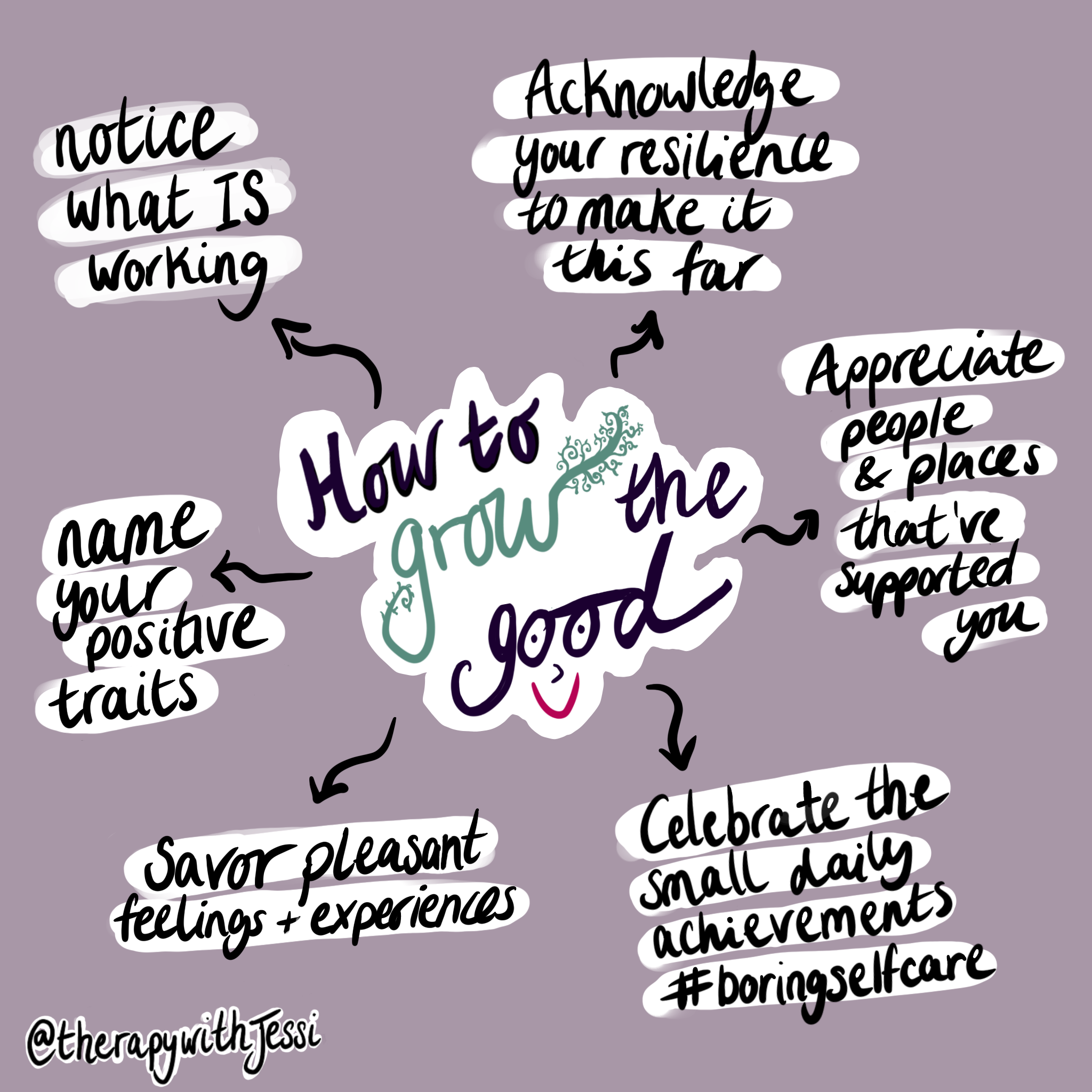What You Focus on Expands: How to Grow the Good
For many folks in therapy there can be a tendency to hyper-focus on what they are NOT doing well or on what is NOT working in their lives. This makes sense, as our brain’s “negativity bias” makes us more sensitive to unpleasant thoughts, emotions, and events. Psychologist Rick Hanson explains that “the brain is like Teflon for the positive and Velcro for the negative.” Our ancestors’ brains developed this adaptation in order to avoid danger and survive; however, it no longer serves us in the same way.
If we only focus on our “failures” and what’s “not working,” we not only negate all the ways in which we ARE functioning and coping well, we also erode our internal sense of self-efficacy and power. That’s not to say that we should push away our painful experiences and difficulties, but as trauma specialist Laurence Heller put it, “focusing primarily on dysfunction reinforces dysfunction.” When we only see the negative, we reinforce limiting self-beliefs, which can make us feel hopeless and depressed.
Instead of focusing exclusively on the negative, we can note our positive internal and external resources which offer us a broader and more accurate picture of oureslves. In fact, giving more attention to the positives can help us grow the good. What you focus on expands.
We can begin by noticing the energy and willingness it took to complete even the most mundane daily tasks. Maybe you finally paid a bill that’s been sitting around. Instead of focusing on the negative (“I should have paid that sooner”), recognize your positive traits (“I get things done! I am responsible!”). Consider those few minutes at work when you stopped what you were doing to help a colleague. Notice your kindness or your loyalty. Maybe you cooked yourself a meal recently. It took either forethought to purchase the ingredients in advance or creativity to cook with items left over in your pantry.
Simply noticing our inner strengths in moments like these reinforces them to build a positive sense of self. That way, when confronted with even greater challenges, we can remember our strengths, access our power, and move forward resiliently.
Exercise from Laurence Heller’s book, Healing Developmental Trauma:
Reflect on the external resources you have in your life. Notice what you feel emotionally and physically as you remember the people, places, pets, activities or organizations that have supported you.
Make a list of your internal resources (coping skills, tenacity, capacity for friendship, curiosity, openness etc.). Notice how you feel as you acknowledge your strengths.


